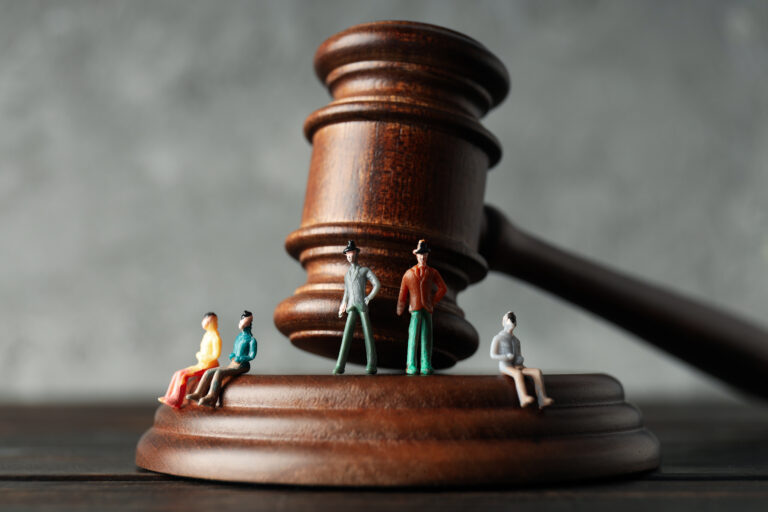Early Neutral Evaluation: A Path to Efficient Dispute Resolution
Category Blog
Early Neutral Evaluation: A Path to Efficient Dispute Resolution
28 June 2024
In the ever-evolving landscape of legal dispute resolution, Early Neutral Evaluation (ENE) has emerged as a powerful tool. But what exactly is ENE, and how can it benefit you?
Index
What is Early Neutral Evaluation? Choosing the Right Evaluator Strengths and Weaknesses of Early Neutral EvaluationIs Early Neutral Evaluation Right for Your Dispute?
What is Early Neutral Evaluation?
Early Neutral Evaluation is an innovative alternative dispute resolution method where an independent third party with the requisite expertise provides an impartial assessment of your case’s merits. ENE can be used at any stage of a dispute but can only be carried out with all the parties’ agreement. You can find more information here
Key Points of Early Neutral Evaluation
- Can be used at any stage of a dispute: ENE is flexible and can be initiated at any point in the dispute process, whether at the beginning, middle, or towards the end.
- Requires agreement from all parties: All parties involved must agree to participate in ENE for it to proceed.
- Provides a non-binding, “without prejudice” evaluation: The assessment provided through ENE is non-binding and is conducted “without prejudice,” meaning it cannot be used against any party in future litigation.
- Does not eliminate other dispute resolution options: Engaging in ENE does not prevent parties from pursuing other forms of dispute resolution, such as arbitration or litigation, if necessary.
Why Consider Early Neutral Evaluation?

Early Neutral Evaluation offers a clear view of your case’s strengths and weaknesses. An independent evaluator with expertise in the relevant legal area will assess the merits of your case, providing an objective analysis. This insight can be invaluable for parties trying to understand their position and the potential outcomes of their dispute.
Facilitate Negotiations
Armed with an expert opinion from ENE, parties often find common ground more easily. The impartial evaluation can help bridge gaps in understanding and foster a more collaborative negotiation environment. When both sides understand the strengths and weaknesses of their cases, they are more likely to engage in productive discussions and find mutually agreeable solutions.
Save Time and Resources
Early Neutral Evaluation has the potential to save considerable time and resources by addressing issues early. By obtaining an expert evaluation of the case’s merits, parties can avoid protracted litigation and the associated costs. ENE can streamline the dispute resolution process, leading to quicker settlements and reduced legal expenses.
Choosing the Right Evaluator: The Cornerstone of Successful Early Neutral Evaluation

The choice of an evaluator is incredibly important for the success of Early Neutral Evaluation. The evaluator must be independent, impartial, and possess the expertise to assess the concerns of all parties involved. The evaluator must also be respected by the parties to ensure the process is effective. If the parties do not respect the evaluator, they are unlikely to respect the evaluation.
Importance of Expertise and Impartiality in Early Neutral Evaluation
For this reason, ENE by a TCC (Technology and Construction Court), Chancery, or Commercial Court judge, or a senior KC (King’s Counsel), is often considered more likely to yield successful results. These professionals bring a high level of expertise and authority to the process, ensuring that their evaluations are taken seriously by all parties.
Appointment Process
- Chartered Institute of Arbitrators
- Academy of Experts
- CEDR (Centre for Effective Dispute Resolution)
- ADR Group
- CDP (Commercial Dispute Resolution Panel)
- RICS (Royal Institution of Chartered Surveyors)
- London Court of International Arbitration
Court’s Powers Under CPR 3.1(2)(m) and Early Neutral Evaluation
The court’s powers under CPR 3.1(2)(m) allow for Early Neutral Evaluation to be conducted by a judge, furthering the overriding objective of efficient case management. The court can “take any other step or make any other order for the purpose of managing the case and furthering the overriding objective, including hearing an ENE with the aim of helping the parties settle the case.” The TCC, Chancery, and Commercial Court Guides make it clear that the judge conducting the Early Neutral Evaluation will not participate further in the proceedings, unless otherwise agreed upon by the parties.
Strengths and Weaknesses of Early Neutral Evaluation

Strengths of Early Neutral Evaluation
- Identify and Narrow Central Issues: Early Neutral Evaluation helps identify and focus on the central issues of the dispute, potentially streamlining the resolution process.
- Facilitates Realistic Negotiations: By providing a clear, expert opinion, ENE encourages more realistic and productive negotiations between parties.
- Early Case Assessment: Parties gain an early assessment of the case, allowing for more informed decision-making.
- Identifies Case Weaknesses: Early Neutral Evaluation highlights potential weaknesses in the case, giving parties the opportunity to address them before further proceedings.
- Highlights Litigation Risks: By understanding the risks associated with litigation, parties may opt for more amicable resolution methods.
- Flexible and Confidential: ENE is a flexible and confidential process, allowing parties to discuss issues openly without fear of repercussions.
Weaknesses of Early Neutral Evaluation
- May Entrench Favourable Positions: If one party believes the evaluation favours their position, they may become less willing to compromise.
- Potential Compromise of Negotiating Stance: Parties may feel that their negotiating stance is compromised by the evaluator’s opinion.
- Cost Concerns if Extensive Preparation Needed: ENE can incur costs, especially if extensive preparation is required.
- Less Suitable for Fact-Heavy Disputes: Early Neutral Evaluation may be less effective for disputes heavily reliant on factual evidence, as the evaluator’s role is not to resolve factual disagreements.
- Limitation Period Continues During Early Neutral Evaluation: Legal limitation periods continue to run during ENE, which may pressure parties to settle quickly.
Is Early Neutral Evaluation Right for Your Dispute?
ENE can be a game-changer in resolving legal disputes efficiently. However, its suitability depends on your specific circumstances. Factors to consider include the complexity of the case, the willingness of parties to engage in the process, and the availability of a suitable evaluator.
At Karam, Missick & Traube LLP, we’re here to guide you through the ENE process and help determine if it’s the right path for your case. Our team of experts is ready to provide advice tailored to your unique situation.
Ready to Explore How Early Neutral Evaluation Can Work for You?
+44 20 7292 2060



